 I really enjoyed the movie Good Morning, Vietnam. Robin Williams was terrific in his role as Adrian Cronauer. He was a Disc Jockey for the American Forces Network and an English Teacher. Appealing to the differing musical tastes of soldiers from all regions of America is a task. Teaching Conversational English as a second language to the Vietnamese, although it was comical in the movie, was a challenge, as well. So that leads me into a period of time where I did basically the same thing; in Taiwan, rather than
I really enjoyed the movie Good Morning, Vietnam. Robin Williams was terrific in his role as Adrian Cronauer. He was a Disc Jockey for the American Forces Network and an English Teacher. Appealing to the differing musical tastes of soldiers from all regions of America is a task. Teaching Conversational English as a second language to the Vietnamese, although it was comical in the movie, was a challenge, as well. So that leads me into a period of time where I did basically the same thing; in Taiwan, rather than  Vietnam (Pat Sajak was a Disc Jockey in Vietnam but was given the Wheel of Fortune job over me because Vanna and I had a history).
Vietnam (Pat Sajak was a Disc Jockey in Vietnam but was given the Wheel of Fortune job over me because Vanna and I had a history).
In 1969 I owned a beautiful 1966 Aqua-colored Chevy Impala convertible with a white top, a 283 engine, and a 327 logo; a fraud perpetrated by the previous owner. After buying it from Bob Peck Chevrolet in Alexandria, I continued the lie. It looked cool and felt like a muscle car, with a nice  sized trunk, making it possible to smuggle my girlfriend into the drive-in without paying.
sized trunk, making it possible to smuggle my girlfriend into the drive-in without paying.
One Saturday evening I went to Fairfax Village in Southeast DC to  drink at a bar named The End Zone. At the time we only had to be eighteen to qualify for suds in Washington. My drinking partner was a friend, Ronnie Floyd, who had recently been drafted by the Army, but when he went to Ft. Holabird in Baltimore for his induction, a fellow from the U. S. Marines came in the room and chose him for their team. That’s how it was then. We had no choice.
drink at a bar named The End Zone. At the time we only had to be eighteen to qualify for suds in Washington. My drinking partner was a friend, Ronnie Floyd, who had recently been drafted by the Army, but when he went to Ft. Holabird in Baltimore for his induction, a fellow from the U. S. Marines came in the room and chose him for their team. That’s how it was then. We had no choice.
That night it was snowing, and while preparing to leave the house, I joked with my parents about wrecking my car. Some joke. After celebrating Ronnie’s imminent tour in Vietnam for a few hours, I said goodbye to him and got in my car for the ride to Landover, where my family was living at the time. Of course, I shouldn’t have been driving, but in those days, no one paid much attention to that sort of thing, so while traveling NE on Alabama Avenue I began to slide in the snow, taking out a police call box. Oopsie Daisy!
joked with my parents about wrecking my car. Some joke. After celebrating Ronnie’s imminent tour in Vietnam for a few hours, I said goodbye to him and got in my car for the ride to Landover, where my family was living at the time. Of course, I shouldn’t have been driving, but in those days, no one paid much attention to that sort of thing, so while traveling NE on Alabama Avenue I began to slide in the snow, taking out a police call box. Oopsie Daisy!  The upper half of the box landed in the back seat of the car, and the lower half was dragged several hundred feet under the vehicle,
The upper half of the box landed in the back seat of the car, and the lower half was dragged several hundred feet under the vehicle, destroying all the hardware necessary for it to operate, as I experienced the twirling sleigh ride from hell, stopping at the corner of Alabama and Massachusetts Avenues. After looking around for Angels or pitchforks and realizing life would continue, I found the nearest pay phone (since the call box was useless) and called my parents.
destroying all the hardware necessary for it to operate, as I experienced the twirling sleigh ride from hell, stopping at the corner of Alabama and Massachusetts Avenues. After looking around for Angels or pitchforks and realizing life would continue, I found the nearest pay phone (since the call box was useless) and called my parents.
It is just a bit foggy exactly how everything transpired, but I remember my parents showing up, and do not recall any police presence. My father and I pushed what was left of the call box from the middle of the road as he questioned me about my alcohol indulgence. Being a punk 19-year-old, of course I lied. “No dad, I haven’t been drinking,” but my stumbling behavior should have given me away. As a father, he was probably grateful to see me alive, and just a bit ticked about the inebriation, forgiving the lie for the survival. If given the same situation as a parent, I probably would have been as benevolent. But the car was totaled, and my life was soon to change.
The loss of transportation made it difficult to attend classes at Prince George’s Community College. It was my first semester, and hitchhiking to class was unreliable. After missing quite a few sessions, my grades were suffering, so I dropped out. In 1969, dropping out of school meant you went from a 2-S draft classification to 1-A immediately. Your lottery number was basically null and void. So, my induction was on the horizon.
I didn’t wait. Knowing Ronnie Floyd had been drafted and subsequently transformed into a Marine scared the heck out of me, so I  went to DC and hit the Recruiter’s office. I signed up for the Air Force because it was my best chance not to be wallowing in the mud in ‘Nam. After taking their exam I qualified for several positions and agreed to enlist under the first one available, which was in the administrative category. Whew! I avoided the draft. After Basic Training and Technical School, I was sent to Taiwan. My Radar O’Reilly career was beginning.
went to DC and hit the Recruiter’s office. I signed up for the Air Force because it was my best chance not to be wallowing in the mud in ‘Nam. After taking their exam I qualified for several positions and agreed to enlist under the first one available, which was in the administrative category. Whew! I avoided the draft. After Basic Training and Technical School, I was sent to Taiwan. My Radar O’Reilly career was beginning.
From July 1969 through February 1973, I was stationed at Tainan Air Base in Taiwan; assigned to the 2128th Communications Squadron. The United States maintained a presence in that country following the 1949 fall of China to the Communist regime (Peoples Republic of China) of Mao Tse-Tung. The Kuomintang (Republic of China) led by Chiang Kai-shek escaped to Taiwan, which has never been disputed by either side as a part of China. Because of our staunch anti-Communist stand at the time and the invasion of Korea by Red China, the US elected to protect Taiwan from Mao, and 20 years later, I arrived.
The United States maintained a presence in that country following the 1949 fall of China to the Communist regime (Peoples Republic of China) of Mao Tse-Tung. The Kuomintang (Republic of China) led by Chiang Kai-shek escaped to Taiwan, which has never been disputed by either side as a part of China. Because of our staunch anti-Communist stand at the time and the invasion of Korea by Red China, the US elected to protect Taiwan from Mao, and 20 years later, I arrived.
The first thing I noticed after landing on the island was the smell. They had an open sewage system, which was essentially vented, masonry-covered pits along the streets. This kept people from falling in but allowed the odor to assault all the senses possible. It reeked, but after a short time, I didn’t even notice. Other than the odor, Taiwan was  beautiful. Imagine a tropical paradise, where you spend most of the day dodging bicycles, scooters, motorcycles, taxis and pedestrians, in overcrowded conditions, and you have a pretty good idea. Taiwan is bisected by the Tropic of Cancer, so the weather in Tainan is similar to Havana, Cuba (without the Castros). I was delighted to be there.
beautiful. Imagine a tropical paradise, where you spend most of the day dodging bicycles, scooters, motorcycles, taxis and pedestrians, in overcrowded conditions, and you have a pretty good idea. Taiwan is bisected by the Tropic of Cancer, so the weather in Tainan is similar to Havana, Cuba (without the Castros). I was delighted to be there.
In the early morning, Tainan was serene. Less activity and street breakfast, consisting of heated soy milk and a sort of airy bread stick that was deep fried and probably unhealthy, but “Oh so good.” I’m not sure my etiquette was acceptable, but I dipped the bread stick in the soy milk and enjoyed my “Ugly American self.” I was on a four-year vacation and didn’t care what anyone thought.
that was deep fried and probably unhealthy, but “Oh so good.” I’m not sure my etiquette was acceptable, but I dipped the bread stick in the soy milk and enjoyed my “Ugly American self.” I was on a four-year vacation and didn’t care what anyone thought.
 One of my favorite activities in Taiwan was eating from street vendors (we called them Noodle Stands). As a young, naive kid, I didn’t think there was anything wrong with it and contamination was not a concern. Everything was boiled or deep-fried and just awesome, with just the right sauces and spice. From 1895 to 1945 Taiwan was occupied by the Japanese, influencing the variety of foods. Fried tofu (smelled like feet), squid, snake, various poultry parts, eel, frog, noodles; you name it, I ate it. I’m sure today, based on my recent experience with Giardia, I would be hesitant to indulge, but in those days gorging on strange cuisine was my preference.
One of my favorite activities in Taiwan was eating from street vendors (we called them Noodle Stands). As a young, naive kid, I didn’t think there was anything wrong with it and contamination was not a concern. Everything was boiled or deep-fried and just awesome, with just the right sauces and spice. From 1895 to 1945 Taiwan was occupied by the Japanese, influencing the variety of foods. Fried tofu (smelled like feet), squid, snake, various poultry parts, eel, frog, noodles; you name it, I ate it. I’m sure today, based on my recent experience with Giardia, I would be hesitant to indulge, but in those days gorging on strange cuisine was my preference.
 Tainan Air Base was situated next to Air Asia (Air America- CIA), and our job was basically to keep the Communist Chinese from overtaking the island and providing support for activities in Vietnam. For me, it was renting a house off base for less than $40 a month and partying with my friends. In the Communications Center we manned an old switchboard, probably left over from the
Tainan Air Base was situated next to Air Asia (Air America- CIA), and our job was basically to keep the Communist Chinese from overtaking the island and providing support for activities in Vietnam. For me, it was renting a house off base for less than $40 a month and partying with my friends. In the Communications Center we manned an old switchboard, probably left over from the  Korean War (thus the Radar reference). Within the “secret” area we operated a General Dynamics computer that was a combination teletype, card reader, magnetic tape reader, and printer, very high tech for the time. In the building next door, there was the radio station, American Forces Network Taiwan, which was the only station in southern Taiwan to broadcast in English. If you open this map, you’ll see in the lower right corner AFNT (125) next door to the Communications Center (127).
Korean War (thus the Radar reference). Within the “secret” area we operated a General Dynamics computer that was a combination teletype, card reader, magnetic tape reader, and printer, very high tech for the time. In the building next door, there was the radio station, American Forces Network Taiwan, which was the only station in southern Taiwan to broadcast in English. If you open this map, you’ll see in the lower right corner AFNT (125) next door to the Communications Center (127).
After a short time in the country, the local Baptist Church sought volunteers to teach Conversational English at the Chinese Air Force Academy in Gangshan, Kaoshiung County, Taiwan, south of Tainan. I was dating an Elementary School teacher, Tsai-Yun (eventually my first wife and mother of our two wonderful children), who thought it would be a good idea to volunteer. So, I did. The Robin Williams Experience began.
Chinese Air Force Academy in Gangshan, Kaoshiung County, Taiwan, south of Tainan. I was dating an Elementary School teacher, Tsai-Yun (eventually my first wife and mother of our two wonderful children), who thought it would be a good idea to volunteer. So, I did. The Robin Williams Experience began.
The classes were really nothing more than young Air Force Cadets asking me questions about my personal life and America. “Do you have a girlfriend?” “Is everyone rich in America?” “Are all American women blond?” “What do you and your girlfriend do for fun?” “Why do you say you know so much?” It was a good time and we laughed together quite often.
After several months of teaching, they had a graduation party for me.  The Chinese like to eat. Their parties consist of many dishes on the table, where everyone partakes, family-style. But the officers, particularly the General in charge of the school, liked Johnny Walker Black; however, they did not sip the beverage, they swilled. Every time a drink was poured one of them would shout “Gambei!” and we would all tilt our heads back and shoot the beverage down our gullets. After several “down the hatches” the food and drink were not sitting so well. Eventually, it was time to grab the toilet bowl with both hands, on my knees, and rid myself of the evening’s offerings. In the adjacent stall of the men’s room, it was obvious someone was experiencing the same ordeal. I exited my area for clean up, and guess who came out of the other stall to do the same? The General. He smiled, then laughed and patted me on the back, while slurring something in Chinese. Apparently, I had made a friend. Who would have thought Johnny Walker was such a matchmaker?
The Chinese like to eat. Their parties consist of many dishes on the table, where everyone partakes, family-style. But the officers, particularly the General in charge of the school, liked Johnny Walker Black; however, they did not sip the beverage, they swilled. Every time a drink was poured one of them would shout “Gambei!” and we would all tilt our heads back and shoot the beverage down our gullets. After several “down the hatches” the food and drink were not sitting so well. Eventually, it was time to grab the toilet bowl with both hands, on my knees, and rid myself of the evening’s offerings. In the adjacent stall of the men’s room, it was obvious someone was experiencing the same ordeal. I exited my area for clean up, and guess who came out of the other stall to do the same? The General. He smiled, then laughed and patted me on the back, while slurring something in Chinese. Apparently, I had made a friend. Who would have thought Johnny Walker was such a matchmaker?
A couple of years, a few typhoons and some earthquakes later, I was looking for something else to do besides answering the switchboard and delivering messages to those showing proper ID at the window of the Communications Center. One of the Disc Jockeys, with whom I had become friendly, came over to our building one day and asked if I was  interested in auditioning for a part-time position as a weekend broadcaster. It was volunteer work but would be a lot of fun. I jumped at the opportunity and as soon as my shift was over, stopped by to meet with the Station Manager. He gave me a script to read, I passed the test, and “poof” I was given the job. My show was Saturday
interested in auditioning for a part-time position as a weekend broadcaster. It was volunteer work but would be a lot of fun. I jumped at the opportunity and as soon as my shift was over, stopped by to meet with the Station Manager. He gave me a script to read, I passed the test, and “poof” I was given the job. My show was Saturday morning at 6:00 AM, in between Wolf Man Jack and Bob Kinglsey (both on tape), and Sunday at 8:00, right after a religious show (yeah, they were probably politically incorrect, but no one complained). From March 1972 through February 1973, I was a small-time star.
morning at 6:00 AM, in between Wolf Man Jack and Bob Kinglsey (both on tape), and Sunday at 8:00, right after a religious show (yeah, they were probably politically incorrect, but no one complained). From March 1972 through February 1973, I was a small-time star.
The first song I ever played was Doctor My Eyes, by Jackson Brown, and both shows opened with A Beautiful Morning by The Rascals (initially  known as the Young Rascals). During every show, a young girl would call and ask to hear Layla by Derek and the Dominoes, and I always played it for her, since she was my only groupie (plus she was awake at 6 AM to call, so I awarded her diligence). At the time my personal musical taste was pretty much Hard Rock. One Sunday morning I played six songs in a row, which included Mountain, Grand Funk Railroad, Jethro Tull (Aqualung),
known as the Young Rascals). During every show, a young girl would call and ask to hear Layla by Derek and the Dominoes, and I always played it for her, since she was my only groupie (plus she was awake at 6 AM to call, so I awarded her diligence). At the time my personal musical taste was pretty much Hard Rock. One Sunday morning I played six songs in a row, which included Mountain, Grand Funk Railroad, Jethro Tull (Aqualung),  The Stooges (which had to be smuggled into the studio because they didn’t have anything commercially acceptable), Dr. John, and Humble Pie. I was having a blast, playing air guitar and banging pencils on the console like a wannabe drummer. Then the phone rang. It was the Station Manager. “You know, Bob, we have people stationed here with varying musical tastes. We are the only English Language station in Southern Taiwan; therefore, our people might want to hear something they like, rather than just what you like. So, could you mix it up somewhat and refrain from playing just the hard stuff at 8:00 in the morning?” That’s all he said, but I got his point and grabbed some Frank Sinatra, Johnny Cash, and Stevie Wonder from the library. My morning became a little more boring for me, but the job was secure.
The Stooges (which had to be smuggled into the studio because they didn’t have anything commercially acceptable), Dr. John, and Humble Pie. I was having a blast, playing air guitar and banging pencils on the console like a wannabe drummer. Then the phone rang. It was the Station Manager. “You know, Bob, we have people stationed here with varying musical tastes. We are the only English Language station in Southern Taiwan; therefore, our people might want to hear something they like, rather than just what you like. So, could you mix it up somewhat and refrain from playing just the hard stuff at 8:00 in the morning?” That’s all he said, but I got his point and grabbed some Frank Sinatra, Johnny Cash, and Stevie Wonder from the library. My morning became a little more boring for me, but the job was secure.
I really loved my time in Taiwan, but getting out of the structured military life was a little more important than being a part-time DJ. My full four years would end in May of 1973, but I was entitled to an early out in February and took it. So, it was back to the States to begin civilian life at the end of February. A truly enjoyable experience had to end, and new experiences would begin.
Good morning, USA!
With Love,
Bake My Fish
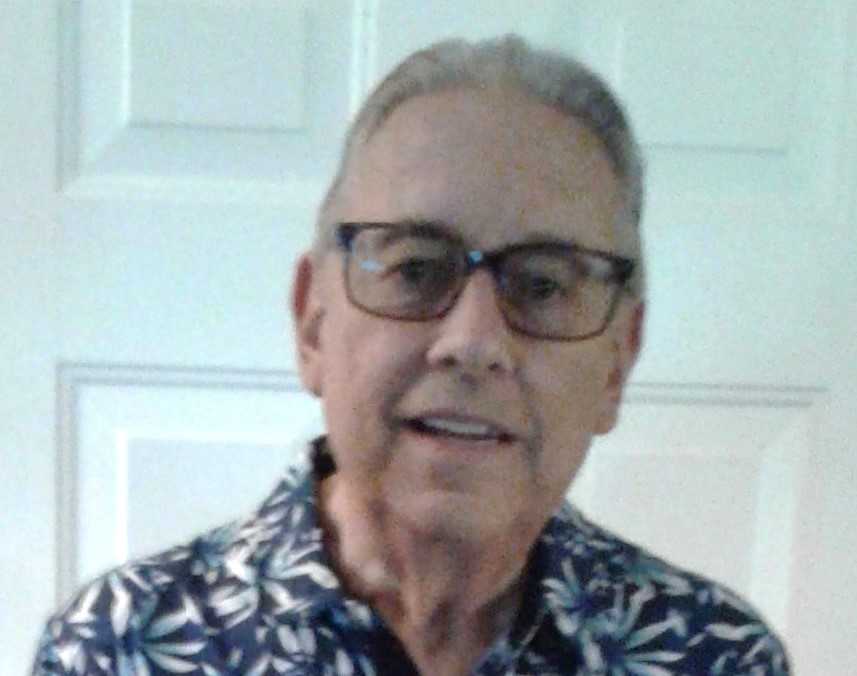 I’ve been a member of a Facebook Group called You May Be From Capitol Heights, Suitland and Hillside? for quite some time. I haven’t been active until recently and since the group includes quite a few people I knew during my childhood (I went by Robby back then), many ask me what I have been doing in the 55 years since I moved from Capitol Heights. Since it is really difficult to respond in Facebook chat I thought it would be easier to just add my bio from Classmates. If you click on any of the links below, you’ll be entertained by further details. So, here goes . . .
I’ve been a member of a Facebook Group called You May Be From Capitol Heights, Suitland and Hillside? for quite some time. I haven’t been active until recently and since the group includes quite a few people I knew during my childhood (I went by Robby back then), many ask me what I have been doing in the 55 years since I moved from Capitol Heights. Since it is really difficult to respond in Facebook chat I thought it would be easier to just add my bio from Classmates. If you click on any of the links below, you’ll be entertained by further details. So, here goes . . . 
 After several years of not maintaining this blog, I am back. Twitter took me away, but Twitter is not the same site now as it was then, so I need another outlet.
After several years of not maintaining this blog, I am back. Twitter took me away, but Twitter is not the same site now as it was then, so I need another outlet. Charles Manson is well known for his cult following of marauding murderers and sadistic killers. He had a way of convincing some folks to snuff out lives indiscriminately, without conscience. Fortunately, he died on November 19, 2017, so for some sickos, their martyr is gone.
Charles Manson is well known for his cult following of marauding murderers and sadistic killers. He had a way of convincing some folks to snuff out lives indiscriminately, without conscience. Fortunately, he died on November 19, 2017, so for some sickos, their martyr is gone. resurrection from the dead of the executed savior, Jesus Christ? I don’t quite understand the correlation of the two, but I assume when the
resurrection from the dead of the executed savior, Jesus Christ? I don’t quite understand the correlation of the two, but I assume when the  even though those doing the killing and torturing declared they were doing so “in his name.” Was Peter (the rabbit) created as a sort of soothing distraction? Who could blame a cute little bunny, giving away treats, for any indiscretions of the past? I’m sure anyone being tortured during the Spanish Inquisition did not have furry little critters dancing in their heads. They were just a little busy croaking.
even though those doing the killing and torturing declared they were doing so “in his name.” Was Peter (the rabbit) created as a sort of soothing distraction? Who could blame a cute little bunny, giving away treats, for any indiscretions of the past? I’m sure anyone being tortured during the Spanish Inquisition did not have furry little critters dancing in their heads. They were just a little busy croaking.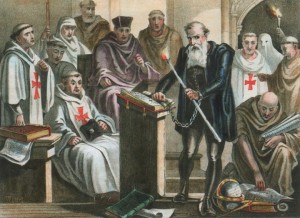 historians the most notorious of them all; quite a blemish on the permanent record of influential distributors of The Word. There is not much mention of it during contemporary sermons. It’s better to forget and let bygones be bygones. After all, those who were involved are no longer available for interviews, and descendants can’t change whatever an ancestor considered appropriate.
historians the most notorious of them all; quite a blemish on the permanent record of influential distributors of The Word. There is not much mention of it during contemporary sermons. It’s better to forget and let bygones be bygones. After all, those who were involved are no longer available for interviews, and descendants can’t change whatever an ancestor considered appropriate.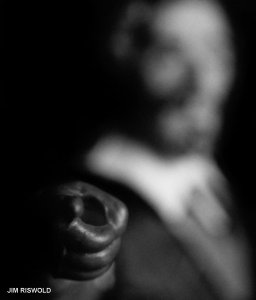 campaign to rid the land of non-believers and establish the Catholic Church as the one true religion.
campaign to rid the land of non-believers and establish the Catholic Church as the one true religion.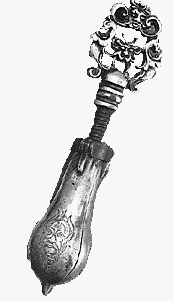 Apparently, the fun part for the Inquisitors was the torture. They developed
Apparently, the fun part for the Inquisitors was the torture. They developed  Heights that always died within a week, and pancake breakfast at the First Baptist Church on 57th Avenue. Then there was fidgeting through the preacher’s talk about Christ and why we celebrate Easter, but all that went over my head because I couldn’t wait to get home to find the hidden eggs. I bet more children overdosed on hard-boiled eggs during that time of year than any other. The eventual
Heights that always died within a week, and pancake breakfast at the First Baptist Church on 57th Avenue. Then there was fidgeting through the preacher’s talk about Christ and why we celebrate Easter, but all that went over my head because I couldn’t wait to get home to find the hidden eggs. I bet more children overdosed on hard-boiled eggs during that time of year than any other. The eventual  flatulence was cause for celebration as each kid tried to out-toot the other. It was a grand time, followed by several days out of school. So, what about Jesus? Lost in the childish celebration of
flatulence was cause for celebration as each kid tried to out-toot the other. It was a grand time, followed by several days out of school. So, what about Jesus? Lost in the childish celebration of 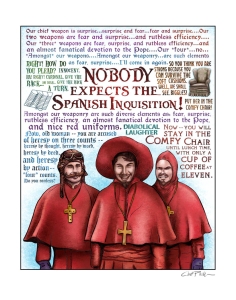 declare all the holidays we want to make it seem better, but it can’t erase the past. Charles Manson should never be forgiven. His victims can’t speak out for themselves. Neither can those who suffered during the Inquisition.
declare all the holidays we want to make it seem better, but it can’t erase the past. Charles Manson should never be forgiven. His victims can’t speak out for themselves. Neither can those who suffered during the Inquisition.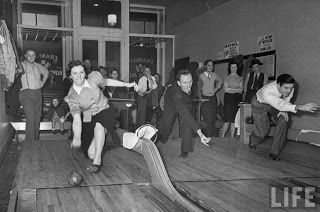 It is generally accepted that
It is generally accepted that  manager and
manager and  team and Saturdays were anxiously anticipated. I couldn’t wait to get to the lanes for the bowling (but really for the French fries). Bowling Alley fries were the best. That was when they cooked them in real fat, not this sissy trans-fat-less stuff we use today. Grease, salt and ketchup . . . . mmmmm, the best. We were active kids, not slothy adults, so the cholesterol didn’t clog our arteries. In my adult years I bowled with a fellow who drenched his French fries in mustard. If we wanted to snatch a fry or two while he was on the lane bowling, we had to eat them with the yellow stuff. I guess his intent was to thwart our thievery of his snack. It worked. Or maybe he just liked them with mustard. On our team, he was the only one.
team and Saturdays were anxiously anticipated. I couldn’t wait to get to the lanes for the bowling (but really for the French fries). Bowling Alley fries were the best. That was when they cooked them in real fat, not this sissy trans-fat-less stuff we use today. Grease, salt and ketchup . . . . mmmmm, the best. We were active kids, not slothy adults, so the cholesterol didn’t clog our arteries. In my adult years I bowled with a fellow who drenched his French fries in mustard. If we wanted to snatch a fry or two while he was on the lane bowling, we had to eat them with the yellow stuff. I guess his intent was to thwart our thievery of his snack. It worked. Or maybe he just liked them with mustard. On our team, he was the only one. bowled on leagues in Suitland, Forestville (Parkland), Queenstown, Hyattsville (Prince George’s Plaza), Marlow Heights, Catonsville (Westview), Laurel (with mustard guy), Silver Spring (White Oak), Riverdale (Rinaldi), Wheaton (Glenmont), College Park, and probably a couple of places I’ve forgotten.
bowled on leagues in Suitland, Forestville (Parkland), Queenstown, Hyattsville (Prince George’s Plaza), Marlow Heights, Catonsville (Westview), Laurel (with mustard guy), Silver Spring (White Oak), Riverdale (Rinaldi), Wheaton (Glenmont), College Park, and probably a couple of places I’ve forgotten. occurrence. Many ten pin bowlers think they’re “tough guys” because they can roll the heavy ball down the lanes. They ain’t so tough when ending up with two pins for a whole frame because the first ball chopped, and the next two were rolled through the hole. I guess they really don’t appreciate the challenge and precision necessary to be a good duck pinner, so they make fun of it.
occurrence. Many ten pin bowlers think they’re “tough guys” because they can roll the heavy ball down the lanes. They ain’t so tough when ending up with two pins for a whole frame because the first ball chopped, and the next two were rolled through the hole. I guess they really don’t appreciate the challenge and precision necessary to be a good duck pinner, so they make fun of it. The biggest factor in the decline was the demise in 1973 of the only company manufacturing automatic pinsetters (one source says it was 1969).
The biggest factor in the decline was the demise in 1973 of the only company manufacturing automatic pinsetters (one source says it was 1969).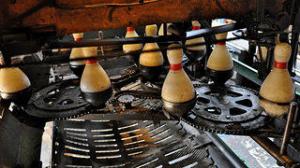 due to their willingness to expand and Sherman’s desire to stay at home. His company didn’t survive, and today Fair Lanes establishments are named AMF.
due to their willingness to expand and Sherman’s desire to stay at home. His company didn’t survive, and today Fair Lanes establishments are named AMF. That’s all fine and dandy, but my preferred awards were for Best Team Name and Best Bowling Attire. My favorite team name and attire (designed by my son) is in the picture to the left.
That’s all fine and dandy, but my preferred awards were for Best Team Name and Best Bowling Attire. My favorite team name and attire (designed by my son) is in the picture to the left. like a star. Spend a few minutes clicking on the links (particularly the
like a star. Spend a few minutes clicking on the links (particularly the  hungry. Chicken tenders and wings have become old hat, and nachos or chili go in easy and exit violently. What to order? What? Then the hot waitress or waiter you’ve been ogling and hoping may find you appealing, suggests sliders.
hungry. Chicken tenders and wings have become old hat, and nachos or chili go in easy and exit violently. What to order? What? Then the hot waitress or waiter you’ve been ogling and hoping may find you appealing, suggests sliders.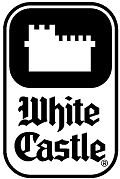 taverns and restaurants lately, and now’s your chance to check them out. Hell, even
taverns and restaurants lately, and now’s your chance to check them out. Hell, even 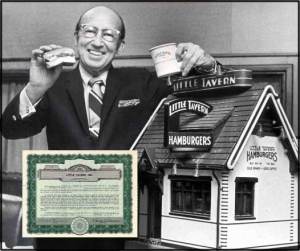 trade. Then in 1928 Harry Duncan relocated from Louisville, KY to Washington, DC and opened the
trade. Then in 1928 Harry Duncan relocated from Louisville, KY to Washington, DC and opened the  were cooked. The “chef” would line the grill with little balls of meat, with chopped onions and fry a bunch, then place them on the small buns along with a pickle and store them covered by a damp towel in a drawer under the grill.
were cooked. The “chef” would line the grill with little balls of meat, with chopped onions and fry a bunch, then place them on the small buns along with a pickle and store them covered by a damp towel in a drawer under the grill. sandwiches that needed to be heated in their toaster ovens (microwaves weren’t available), so my late-night meals were three LT deathballs and a cup of coffee. I’m not one who usually goes for coffee with anything other than breakfast. It just sort of says, “I’m an old fart and don’t care anymore.” Coffee with dinner just doesn’t seem right. But, at Club LT the coffee was delicious, served in the thick mugs that somehow made it better. Not to mention, I needed the caffeine buzz to continue working.
sandwiches that needed to be heated in their toaster ovens (microwaves weren’t available), so my late-night meals were three LT deathballs and a cup of coffee. I’m not one who usually goes for coffee with anything other than breakfast. It just sort of says, “I’m an old fart and don’t care anymore.” Coffee with dinner just doesn’t seem right. But, at Club LT the coffee was delicious, served in the thick mugs that somehow made it better. Not to mention, I needed the caffeine buzz to continue working. driving zone, my favorite cab stand was the College Park Little Tavern, referred to by the cab company as “The Ritz.” Since this location was right across the street from the
driving zone, my favorite cab stand was the College Park Little Tavern, referred to by the cab company as “The Ritz.” Since this location was right across the street from the  , but “Buy ’em by the bag” was the slogan. When Harry started the business, burgers were a nickel, so walking out with a bag full was a pretty easy task. You could feed the whole family.
, but “Buy ’em by the bag” was the slogan. When Harry started the business, burgers were a nickel, so walking out with a bag full was a pretty easy task. You could feed the whole family. living on in its evolved form. The next time you’re at the Green Turtle, Burger King, Chili’s or any place advertising sliders, think of Harry Duncan as you bite into your order. They’re no longer a nickel, and probably not as good, but three deathballs and coffee always hit the spot.
living on in its evolved form. The next time you’re at the Green Turtle, Burger King, Chili’s or any place advertising sliders, think of Harry Duncan as you bite into your order. They’re no longer a nickel, and probably not as good, but three deathballs and coffee always hit the spot. George Bush was recently involved in a game of “Duck, Duck, Goose” during a news conference held in Iraq. One of the members of the Iraqi media (a minivan, with three reporters and two digital cameras) took off his shoes (size 10) and hurled them at the President in an effort to insult him. I am not up on
George Bush was recently involved in a game of “Duck, Duck, Goose” during a news conference held in Iraq. One of the members of the Iraqi media (a minivan, with three reporters and two digital cameras) took off his shoes (size 10) and hurled them at the President in an effort to insult him. I am not up on  were only female and so many times when I was dying fabric pumps in the back room or bringing them to the women, I saw the soles. Not once did I shake or feel insulted. Maybe it was because they were new and had not yet traveled the road of dirty sidewalks or stepped in gum or anything that might make them filthy. My guess is the soiling of the soles of worn shoes is what adds to the insult of showing them to someone. It seems the indignity can only come from a man, since the theory appears to have originated among the not-so-tolerant-of-females men of
were only female and so many times when I was dying fabric pumps in the back room or bringing them to the women, I saw the soles. Not once did I shake or feel insulted. Maybe it was because they were new and had not yet traveled the road of dirty sidewalks or stepped in gum or anything that might make them filthy. My guess is the soiling of the soles of worn shoes is what adds to the insult of showing them to someone. It seems the indignity can only come from a man, since the theory appears to have originated among the not-so-tolerant-of-females men of  the Middle East. That’s probably why I never shivered at Bakers. When Dwight Eisenhower was President, I wonder if Buster Browns were used for the gesture, or would it have been Kinney’s or
the Middle East. That’s probably why I never shivered at Bakers. When Dwight Eisenhower was President, I wonder if Buster Browns were used for the gesture, or would it have been Kinney’s or  some like a man. Typically, men wear pants and have no need to hide their privates. The feminish crosser is most likely just being polite, attempting to avoid showing the sole to innocent observers. It seems to me displaying the bottom of
some like a man. Typically, men wear pants and have no need to hide their privates. The feminish crosser is most likely just being polite, attempting to avoid showing the sole to innocent observers. It seems to me displaying the bottom of  dirty bare feet would be more of a disgusting gesture, but like I said earlier, I’m not a student of the theory. Restaurants do not ban soiled shoe soles, only bare feet. So, the owners of eating establishments must not understand the Shoe Insult Theory, either.
dirty bare feet would be more of a disgusting gesture, but like I said earlier, I’m not a student of the theory. Restaurants do not ban soiled shoe soles, only bare feet. So, the owners of eating establishments must not understand the Shoe Insult Theory, either.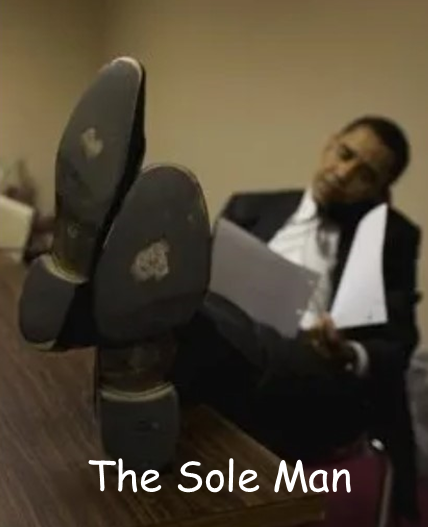 baking process to knead the dough, or is there a subtle insult being extended by the pie? Only the Amish know for sure (but they’re not reading this).
baking process to knead the dough, or is there a subtle insult being extended by the pie? Only the Amish know for sure (but they’re not reading this). I really enjoyed the movie Good Morning, Vietnam. Robin Williams was terrific in his role as
I really enjoyed the movie Good Morning, Vietnam. Robin Williams was terrific in his role as  Vietnam (
Vietnam ( sized trunk, making it possible to smuggle my girlfriend into the
sized trunk, making it possible to smuggle my girlfriend into the  drink at a bar named The End Zone. At the time we only had to be eighteen to qualify for suds in Washington. My drinking partner was a friend, Ronnie Floyd, who had recently been drafted by the Army, but when he went to
drink at a bar named The End Zone. At the time we only had to be eighteen to qualify for suds in Washington. My drinking partner was a friend, Ronnie Floyd, who had recently been drafted by the Army, but when he went to  joked with my parents about wrecking my car. Some joke. After celebrating Ronnie’s imminent tour in Vietnam for a few hours, I said goodbye to him and got in my car for the ride to Landover, where my family was living at the time. Of course, I shouldn’t have been driving, but in those days, no one paid much attention to that sort of thing, so while traveling NE on Alabama Avenue I began to slide in the snow, taking out a police call box. Oopsie Daisy!
joked with my parents about wrecking my car. Some joke. After celebrating Ronnie’s imminent tour in Vietnam for a few hours, I said goodbye to him and got in my car for the ride to Landover, where my family was living at the time. Of course, I shouldn’t have been driving, but in those days, no one paid much attention to that sort of thing, so while traveling NE on Alabama Avenue I began to slide in the snow, taking out a police call box. Oopsie Daisy!  The upper half of the box landed in the back seat of the car, and the lower half was dragged several hundred feet under the vehicle,
The upper half of the box landed in the back seat of the car, and the lower half was dragged several hundred feet under the vehicle, destroying all the hardware necessary for it to operate, as I experienced the twirling sleigh ride from hell, stopping at the corner of Alabama and Massachusetts Avenues. After looking around for Angels or pitchforks and realizing life would continue, I found the nearest pay phone (since the call box was useless) and called my parents.
destroying all the hardware necessary for it to operate, as I experienced the twirling sleigh ride from hell, stopping at the corner of Alabama and Massachusetts Avenues. After looking around for Angels or pitchforks and realizing life would continue, I found the nearest pay phone (since the call box was useless) and called my parents. went to DC and hit the Recruiter’s office. I signed up for the Air Force because it was my best chance not to be wallowing in the mud in ‘Nam. After taking their exam I qualified for several positions and agreed to enlist under the first one available, which was in the administrative category. Whew! I avoided the draft. After Basic Training and Technical School, I was sent to Taiwan. My Radar O’Reilly career was beginning.
went to DC and hit the Recruiter’s office. I signed up for the Air Force because it was my best chance not to be wallowing in the mud in ‘Nam. After taking their exam I qualified for several positions and agreed to enlist under the first one available, which was in the administrative category. Whew! I avoided the draft. After Basic Training and Technical School, I was sent to Taiwan. My Radar O’Reilly career was beginning. The United States maintained a presence in that country following the 1949 fall of China to the Communist regime (Peoples Republic of China) of
The United States maintained a presence in that country following the 1949 fall of China to the Communist regime (Peoples Republic of China) of  beautiful. Imagine a tropical paradise, where you spend most of the day dodging bicycles, scooters, motorcycles, taxis and pedestrians, in overcrowded conditions, and you have a pretty good idea. Taiwan is bisected by the Tropic of Cancer, so the weather in Tainan is similar to Havana, Cuba (without the Castros). I was delighted to be there.
beautiful. Imagine a tropical paradise, where you spend most of the day dodging bicycles, scooters, motorcycles, taxis and pedestrians, in overcrowded conditions, and you have a pretty good idea. Taiwan is bisected by the Tropic of Cancer, so the weather in Tainan is similar to Havana, Cuba (without the Castros). I was delighted to be there. that was deep fried and probably unhealthy, but “Oh so good.” I’m not sure my etiquette was acceptable, but I dipped the bread stick in the soy milk and enjoyed my “Ugly American self.” I was on a four-year vacation and didn’t care what anyone thought.
that was deep fried and probably unhealthy, but “Oh so good.” I’m not sure my etiquette was acceptable, but I dipped the bread stick in the soy milk and enjoyed my “Ugly American self.” I was on a four-year vacation and didn’t care what anyone thought. One of my favorite activities in Taiwan was eating from street vendors (we called them Noodle Stands). As a young, naive kid, I didn’t think there was anything wrong with it and contamination was not a concern. Everything was boiled or deep-fried and just awesome, with just the right sauces and spice. From 1895 to 1945 Taiwan was occupied by the Japanese, influencing the variety of foods. Fried tofu (smelled like feet), squid, snake, various poultry parts, eel, frog, noodles; you name it, I ate it. I’m sure today, based on my recent experience with
One of my favorite activities in Taiwan was eating from street vendors (we called them Noodle Stands). As a young, naive kid, I didn’t think there was anything wrong with it and contamination was not a concern. Everything was boiled or deep-fried and just awesome, with just the right sauces and spice. From 1895 to 1945 Taiwan was occupied by the Japanese, influencing the variety of foods. Fried tofu (smelled like feet), squid, snake, various poultry parts, eel, frog, noodles; you name it, I ate it. I’m sure today, based on my recent experience with  Tainan Air Base was situated next to Air Asia (Air America- CIA), and our job was basically to keep the Communist Chinese from overtaking the island and providing support for activities in Vietnam. For me, it was renting a house off base for less than $40 a month and partying with my friends. In the Communications Center we manned an old switchboard, probably left over from the
Tainan Air Base was situated next to Air Asia (Air America- CIA), and our job was basically to keep the Communist Chinese from overtaking the island and providing support for activities in Vietnam. For me, it was renting a house off base for less than $40 a month and partying with my friends. In the Communications Center we manned an old switchboard, probably left over from the  Korean War (thus the Radar reference). Within the “secret” area we operated a General Dynamics computer that was a combination teletype, card reader, magnetic tape reader, and printer, very high tech for the time. In the building next door, there was the radio station, American Forces Network Taiwan, which was the only station in southern Taiwan to broadcast in English. If you open this
Korean War (thus the Radar reference). Within the “secret” area we operated a General Dynamics computer that was a combination teletype, card reader, magnetic tape reader, and printer, very high tech for the time. In the building next door, there was the radio station, American Forces Network Taiwan, which was the only station in southern Taiwan to broadcast in English. If you open this  Chinese Air Force Academy in
Chinese Air Force Academy in  The Chinese like to eat. Their parties consist of many dishes on the table, where everyone partakes, family-style. But the officers, particularly the General in charge of the school, liked Johnny Walker Black; however, they did not sip the beverage, they swilled. Every time a drink was poured one of them would shout “Gambei!” and we would all tilt our heads back and shoot the beverage down our gullets. After several “down the hatches” the food and drink were not sitting so well. Eventually, it was time to grab the toilet bowl with both hands, on my knees, and rid myself of the evening’s offerings. In the adjacent stall of the men’s room, it was obvious someone was experiencing the same ordeal. I exited my area for clean up, and guess who came out of the other stall to do the same? The General. He smiled, then laughed and patted me on the back, while slurring something in Chinese. Apparently, I had made a friend. Who would have thought Johnny Walker was such a matchmaker?
The Chinese like to eat. Their parties consist of many dishes on the table, where everyone partakes, family-style. But the officers, particularly the General in charge of the school, liked Johnny Walker Black; however, they did not sip the beverage, they swilled. Every time a drink was poured one of them would shout “Gambei!” and we would all tilt our heads back and shoot the beverage down our gullets. After several “down the hatches” the food and drink were not sitting so well. Eventually, it was time to grab the toilet bowl with both hands, on my knees, and rid myself of the evening’s offerings. In the adjacent stall of the men’s room, it was obvious someone was experiencing the same ordeal. I exited my area for clean up, and guess who came out of the other stall to do the same? The General. He smiled, then laughed and patted me on the back, while slurring something in Chinese. Apparently, I had made a friend. Who would have thought Johnny Walker was such a matchmaker? interested in auditioning for a part-time position as a weekend broadcaster. It was volunteer work but would be a lot of fun. I jumped at the opportunity and as soon as my shift was over, stopped by to meet with the Station Manager. He gave me a script to read, I passed the test, and “poof” I was given the job. My show was Saturday
interested in auditioning for a part-time position as a weekend broadcaster. It was volunteer work but would be a lot of fun. I jumped at the opportunity and as soon as my shift was over, stopped by to meet with the Station Manager. He gave me a script to read, I passed the test, and “poof” I was given the job. My show was Saturday morning at 6:00 AM, in between Wolf Man Jack and Bob Kinglsey (both on tape), and Sunday at 8:00, right after a religious show (yeah, they were probably politically incorrect, but no one complained). From March 1972 through February 1973, I was a small-time star.
morning at 6:00 AM, in between Wolf Man Jack and Bob Kinglsey (both on tape), and Sunday at 8:00, right after a religious show (yeah, they were probably politically incorrect, but no one complained). From March 1972 through February 1973, I was a small-time star. known as the Young Rascals). During every show, a young girl would call and ask to hear
known as the Young Rascals). During every show, a young girl would call and ask to hear  The Stooges (which had to be smuggled into the studio because they didn’t have anything commercially acceptable), Dr. John, and Humble Pie. I was having a blast, playing air guitar and banging pencils on the console like a wannabe drummer. Then the phone rang. It was the Station Manager. “You know, Bob, we have people stationed here with varying musical tastes. We are the only English Language station in Southern Taiwan; therefore, our people might want to hear something they like, rather than just what you like. So, could you mix it up somewhat and refrain from playing just the hard stuff at 8:00 in the morning?” That’s all he said, but I got his point and grabbed some Frank Sinatra, Johnny Cash, and Stevie Wonder from the library. My morning became a little more boring for me, but the job was secure.
The Stooges (which had to be smuggled into the studio because they didn’t have anything commercially acceptable), Dr. John, and Humble Pie. I was having a blast, playing air guitar and banging pencils on the console like a wannabe drummer. Then the phone rang. It was the Station Manager. “You know, Bob, we have people stationed here with varying musical tastes. We are the only English Language station in Southern Taiwan; therefore, our people might want to hear something they like, rather than just what you like. So, could you mix it up somewhat and refrain from playing just the hard stuff at 8:00 in the morning?” That’s all he said, but I got his point and grabbed some Frank Sinatra, Johnny Cash, and Stevie Wonder from the library. My morning became a little more boring for me, but the job was secure.